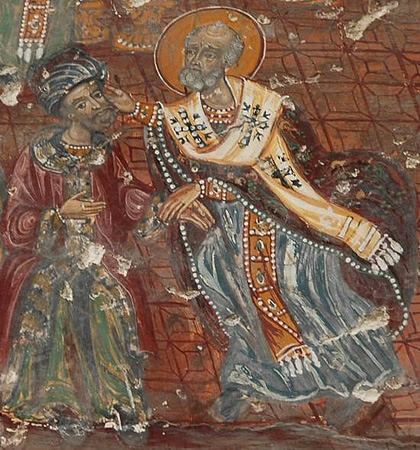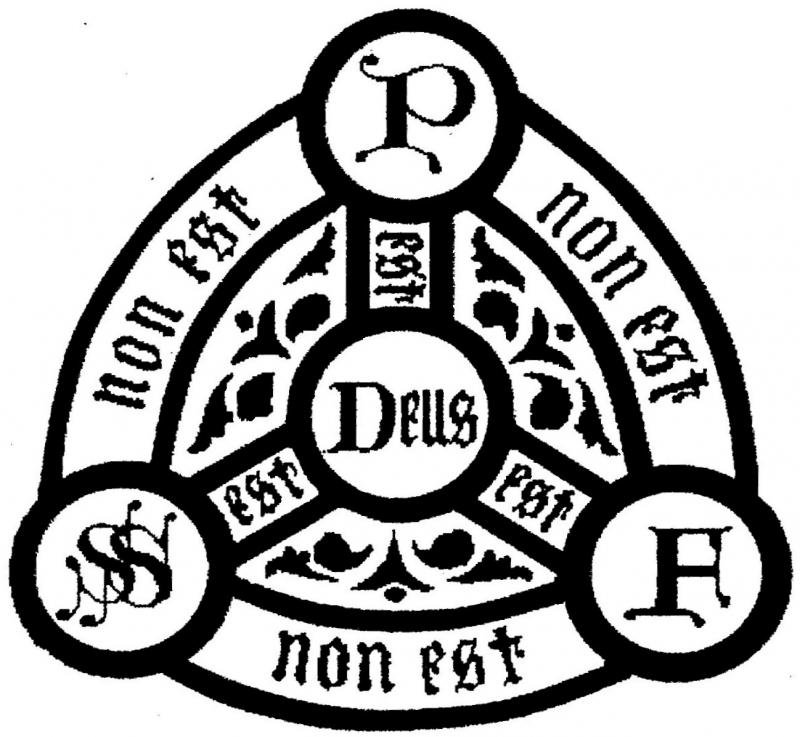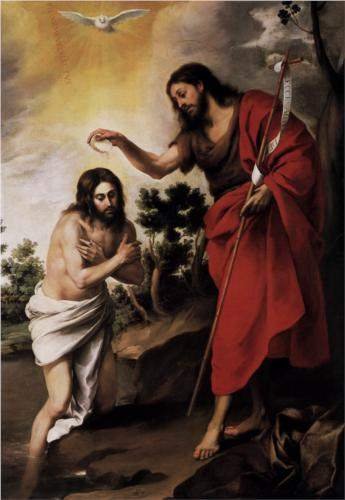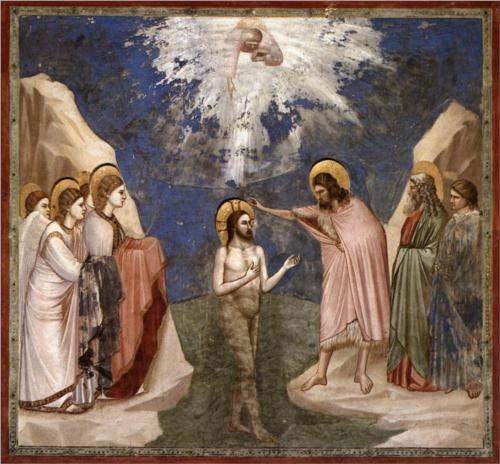I recently had a run-in with a man who was apparently a Oneness Pentecostal or some variant, a non-Trinitarian espousing the idea that God is not a Trinity, but that rather there is only one God, and His name is the LORD*. This was a new one to me: before I had heard that the one God’s name was Jesus. The Trinity, this man informed me, was a pagan, syncretistic doctrine imposed by the Roman emperor Constantine at the Council of Nicaea in 325. He further informed me that the name Jesus was also a pagan corruption, incorporating the name of the Greek god Zeus. I was taken aback by the absurdity of these claims, the ignorance of both history and language.
* He actually said the tetragrammaton, the Holy Name I will not name.

El Greco. Christ blessing (The Saviour of the World) (c. 1600) (WikiPaintings).
The Name of Jesus
Now, more and more recently I have been hearing opposition to the name Jesus, particularly among “Hebrew Roots” groups. More correctly, they say, the name of our Lord is Yeshua — and, indeed, that is a more accurate transliteration of the Hebrew name ישוע. And if it floats anyone’s boat to call Him that, then they can justify themselves in doing so — though it makes me cringe every time I hear someone say it. Inherent in that is a rejection of the cultural tradition of the entire Christian Church, by which the Lord’s name passed into the Greek New Testament as Ἰησοῦς, into Latin as Iesus, and thence to English.
But the claim that the name Jesus is a veiled attempt by the Catholic Church to introduce pagan worship of the god Zeus into Christianity is patently absurd for several different reasons:
-
The earliest Christians spoke Greek. They wrote their Scriptures — the same Scriptures which, at least traditionally, Protestants embraced as their sole rule of faith — in Greek. The name of Ἰησοῦς (Iēsoūs) is the name by which the Christ is called, in Greek, by the inspired authors of the New Testament. Any injection of the name of a Greek god into Christian worship would not have been “veiled” at all. To reject the name Ἰησοῦς as a pagan corruption is to reject the inspiration of Scripture itself and to impugn the motives and credibility of the Apostles themselves and their associates — and If you’re going to go that far, I don’t know why you’re still calling yourself a “Christian.”
-
The Hebrew name ישוע (yēšūă), “The LORD is salvation,” is the same name as the Old Testament leader whose name is translated in English Joshua. Yes, Joshua and Jesus have the same name. And that name, in the Old Testament, was translated in the Greek Septuagint as Ἰησοῦς — several centuries before the coming of the Christ. That was the standard transliteration of the name, according to standard principles of translation, long before any Christian came along.
-
The names Jesus and Zeus didn’t even sound alike in Koine Greek. Zeus is spelled Ζέυς, the “sus” part of Jesus spelled σοῦς. The zeta and sigma made distinctly different sounds — precisely the difference, in English, between Zeus and Seuss. Moreover, the Greek diphthong ευ made a very different sound than ου. Though in English we pronounce eu as a long /uː/ or /juː/ (as in deuce or eugenics), in Greek ευ was pronounced as a double vowel, each sounded separately but quickly as the same syllable, along the lines of eh-oo. In sum, no Greek speaker would ever have seen any connection between “Jesus” and “Zeus.”
The Holy Trinity
The development of the doctrine of the Trinity has a complex history that is covered elsewhere much more thoroughly, with better authority and support, than I can do in a brief space here (see the Catholic Encyclopedia, Catholic Answers, Wikipedia, and many more). But I will say that the Trinity was not “invented” at Nicaea, but had been being considered for centuries before, since the very beginning. The first recorded use of the word τριάς (trias) in reference to God comes from St. Theophilus of Antioch (ca. A.D. 180). Scripture itself very clearly teaches the divinity of Christ, and His oneness with, yet distinctiveness from, God the Father (e.g. John 10:25–30, Luke 10:22), and the distinctiveness of the Holy Spirit (e.g. John 14:26, Luke 11:23) yet His oneness with the Godhead (e.g. Romans 8:11, Philippians 1:19, Matthew 3:16). And then there are clear statements naming the three as a Trinity (e.g. Matthew 28:19, 2 Corinthians 13:14). So the Trinity is on firm footing, both scripturally and historically. And yet, in this day and age, more and more believers, shorn of the Tradition of the Church, are rejecting it.





